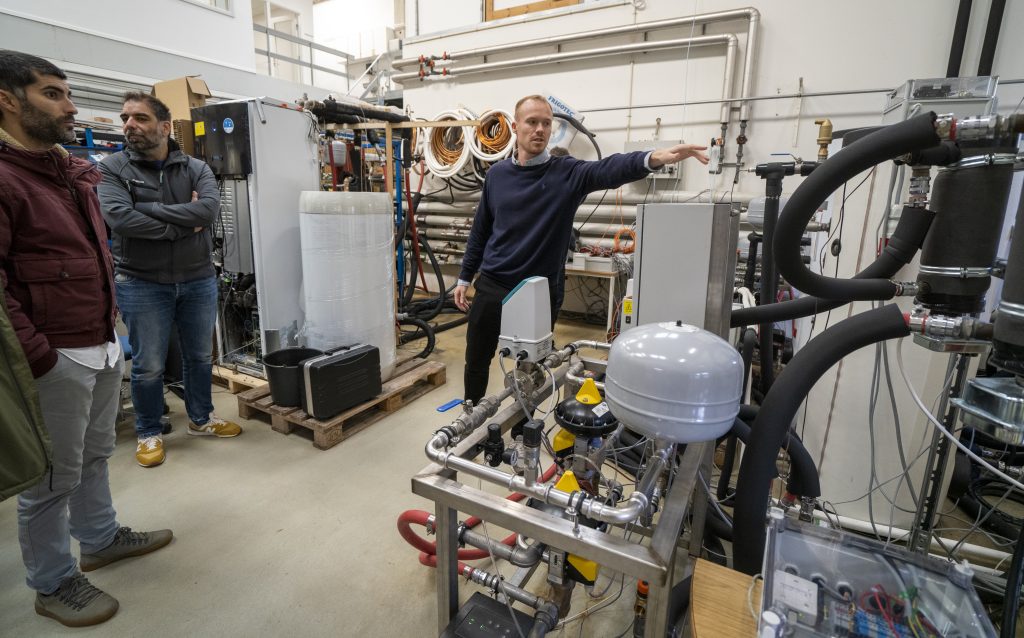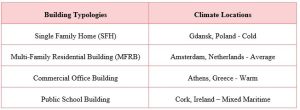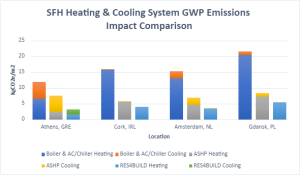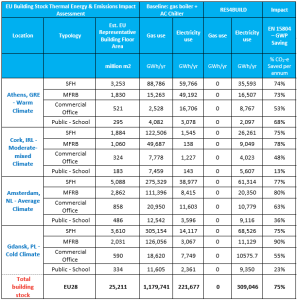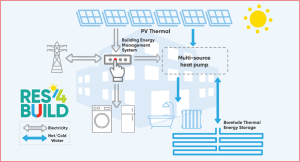While decarbonisation is the main objective of the RES4BUILD integrated energy solutions, decoupling from fossil fuels contributes to security of supply, and using on-site generated electricity contributes to affordability, moving away from heavily fluctuating market prices. A report has indicated the technical potential of these integrated energy systems in the European market,
Research Need
Never has it been more important to ensure that Europeans can cover their buildings energy needs in an affordable and environmentally friendly way. The RES4BUILD project aims to decarbonise the energy consumption in buildings by developing integrated renewable-energy-based solutions; incorporating heat pumps, combined solar photovoltaic-thermal technologies, thermal energy storage and smart management o produce low to zero carbon heating and cooling. While decarbonisation is the main objective, decoupling from fossil fuels contributes to security of supply. In addition, using on-site generated electricity contributes to affordability and moves away from heavily fluctuating market prices.
The pilot systems are operating in Greece, Denmark and Belgium. Simultaneous work has assessesed the potential impact of this integrated energy system from a decarbonisation point of view.
European Market Research and Modelling
The integrated system design is tailored to the needs and requirements of the users. These are are generally defined by the building typology. Additionally, location and energy performance of such building typologies affects the system design. RES4BUILD partners ARUP completed a market assessment to understand the potential project impact.
The partners built a blueprint of the EU building stock from existing data bases and additional relevant research projects. The four selected building typologies characterise approx. 86% of the total EU building stock floor area, across four climatic regions. The RES4BUILD system operation and energy consumption was modeled based on typical building energy demand profiles. Thermal energy demand was then optimised using ‘smart-buildings’ control algorithms.
Impact Assessment
By applying these results across the European market, implementing the RES4BUILD system could lead to a 75% reduction in fossil fuel usage and CO2e. The potential for a major reduction in building energy related CO2 emissions is considerable. However, research on the local market and regulatory drivers, as well as the cost and social impacts of adopting these technological solutions is required.
Although this indicates the technical potential of integrated energy systems in the European market, the actual impact depends on the reach to building owners, tenants and investors. This impact study is a prelude to the wider market analysis, which is currently ongoing.

More Information
The full deliverable "D7.1 Assessing the Project Impact: Report on the European Building Models and teh Benefits that can be Achieved by the use of RES4BUILD systems" visit the RES4BUILD project website.
The project has received funding from the European Union’s Horizon 2020 research and innovation programme under Grant Agreement No. 814865 (RES4BUILD). This output reflects only the author’s view. The European Climate, Infrastructure and Environment Executive Agency (CINEA) and the European Commission cannot be held responsible for any use that may be made of the information contained therein.
Article originally published in European Energy Innovation Autumn 2022 edition.
RES4BUILD

Project details
- Project title: “Renewables for clean energy buildings in a future power system” (RES4BUILD)
- Funding scheme: Horizon 2020 Research and Innovation Action – H2020-EU.3.3.2.
- Duration: 4 years (1 May 2019 – 30 April 2023)
- Project coordinator: Wirtschaft und Infrastruktur Gmbh & Co Planungs Kg (WIP)
- Project website: www.res4build.eu

